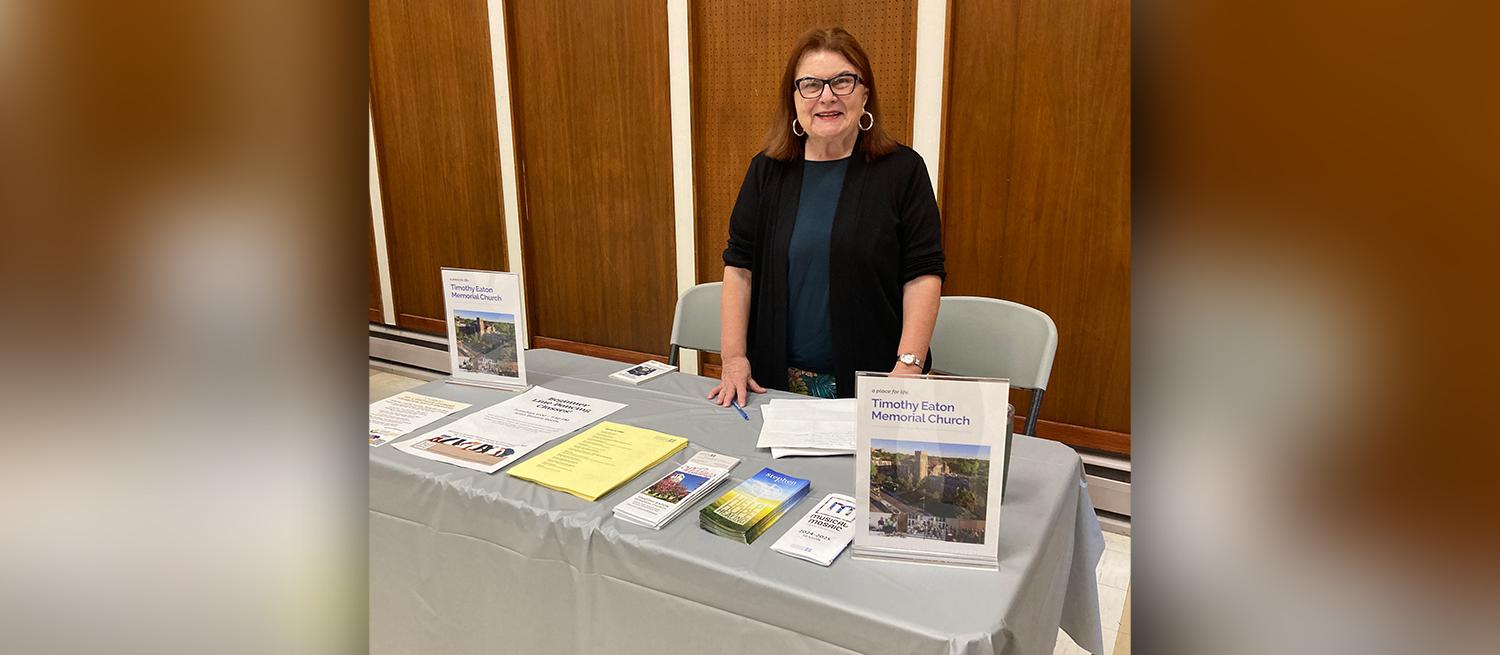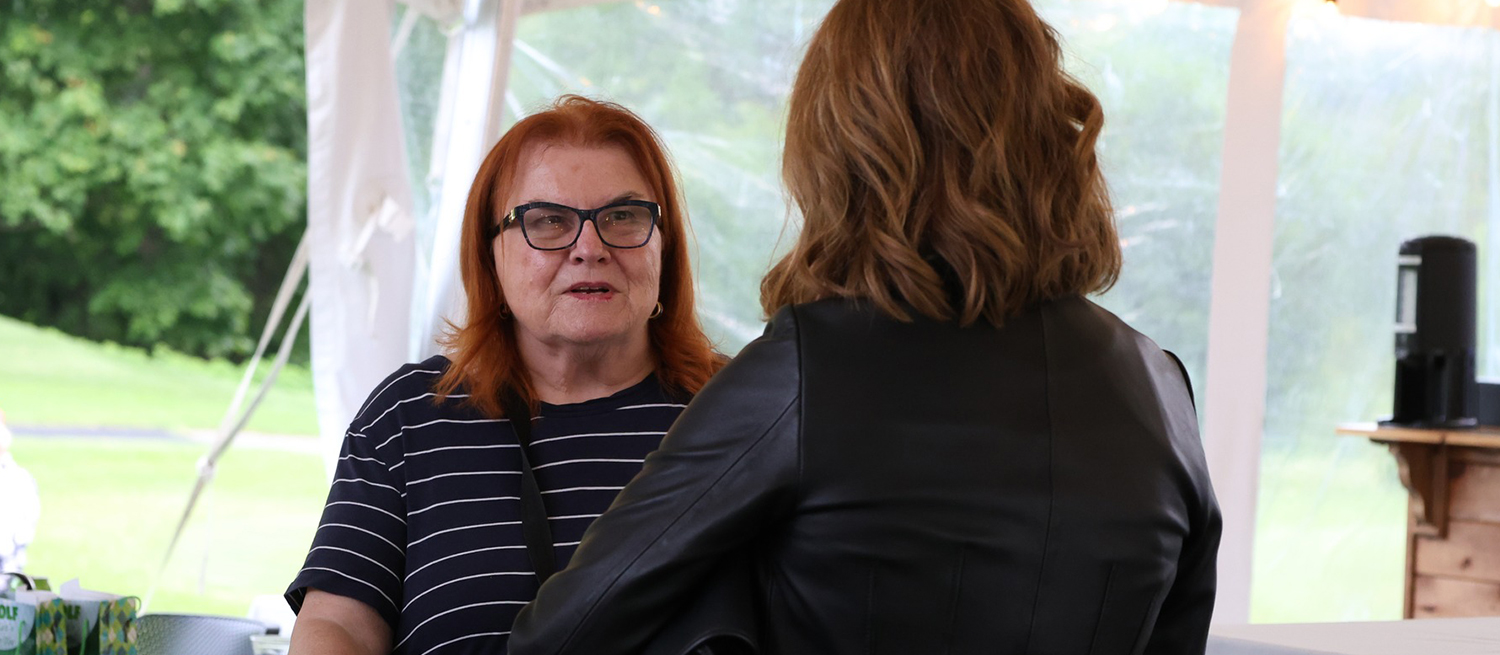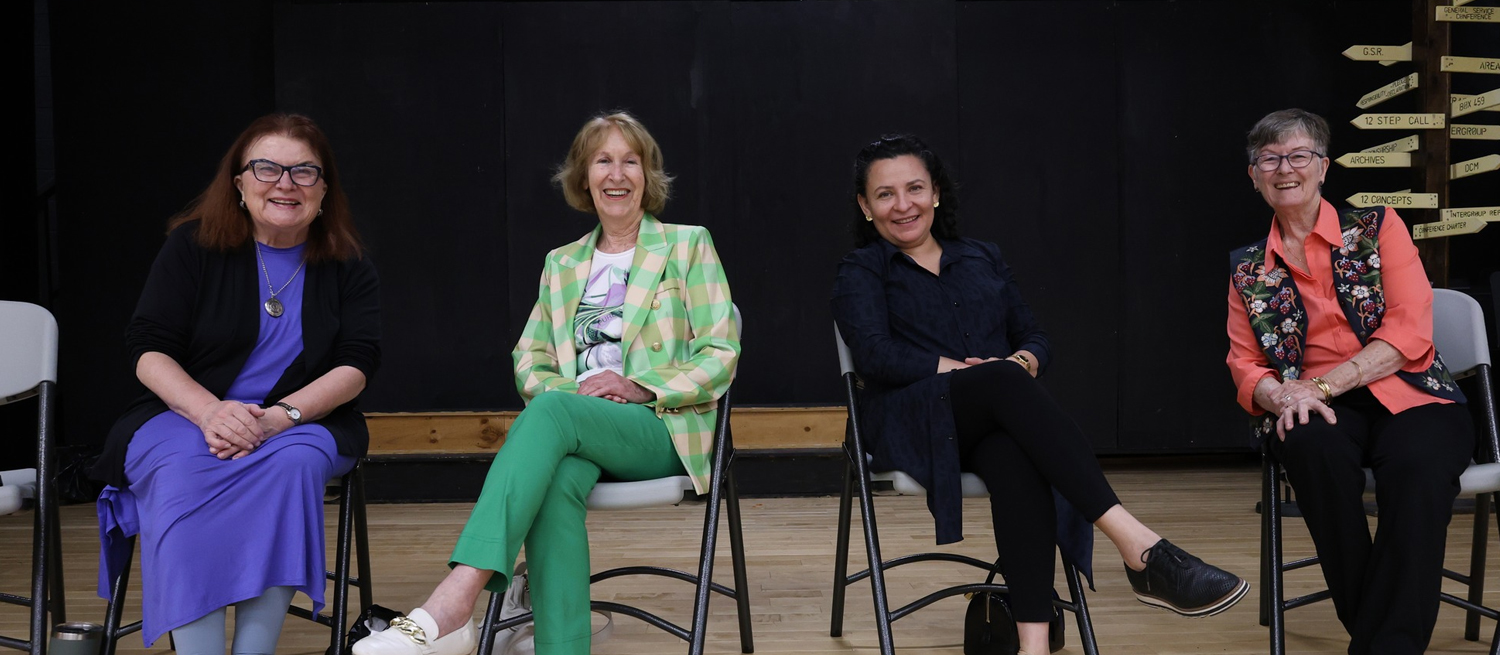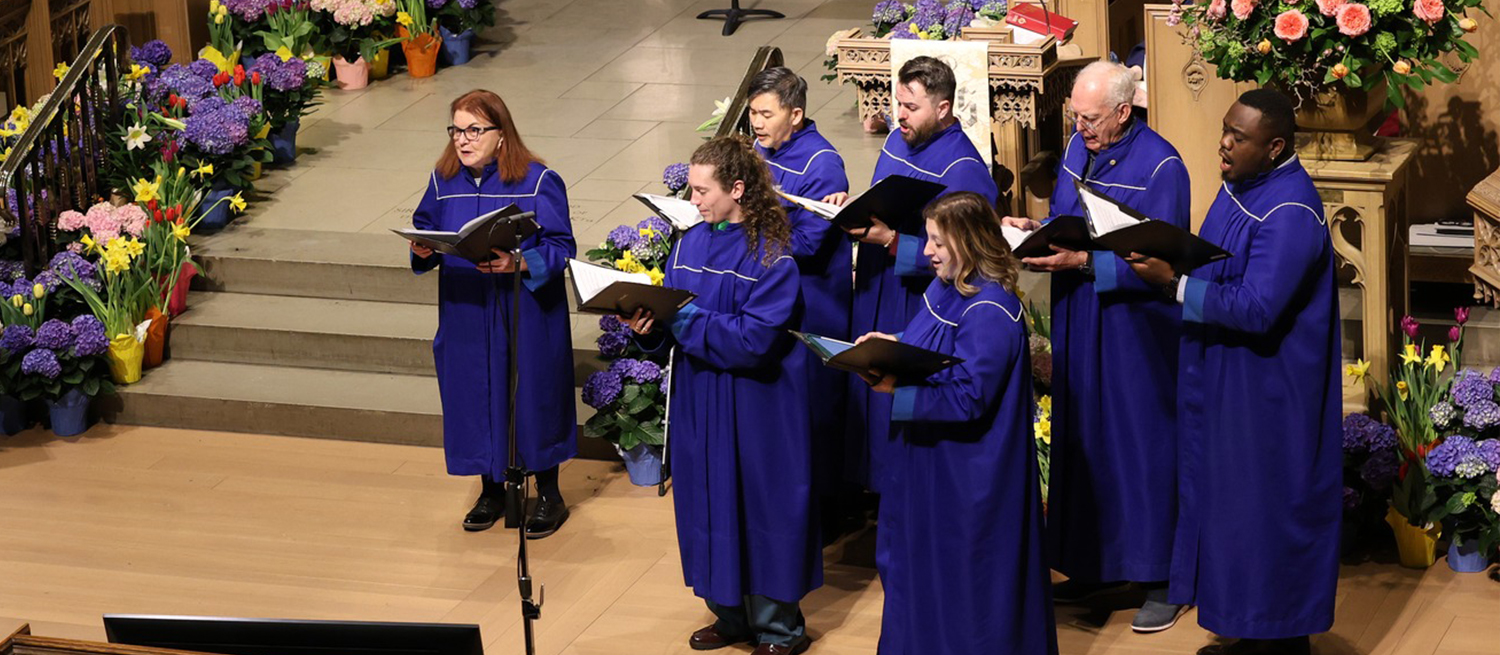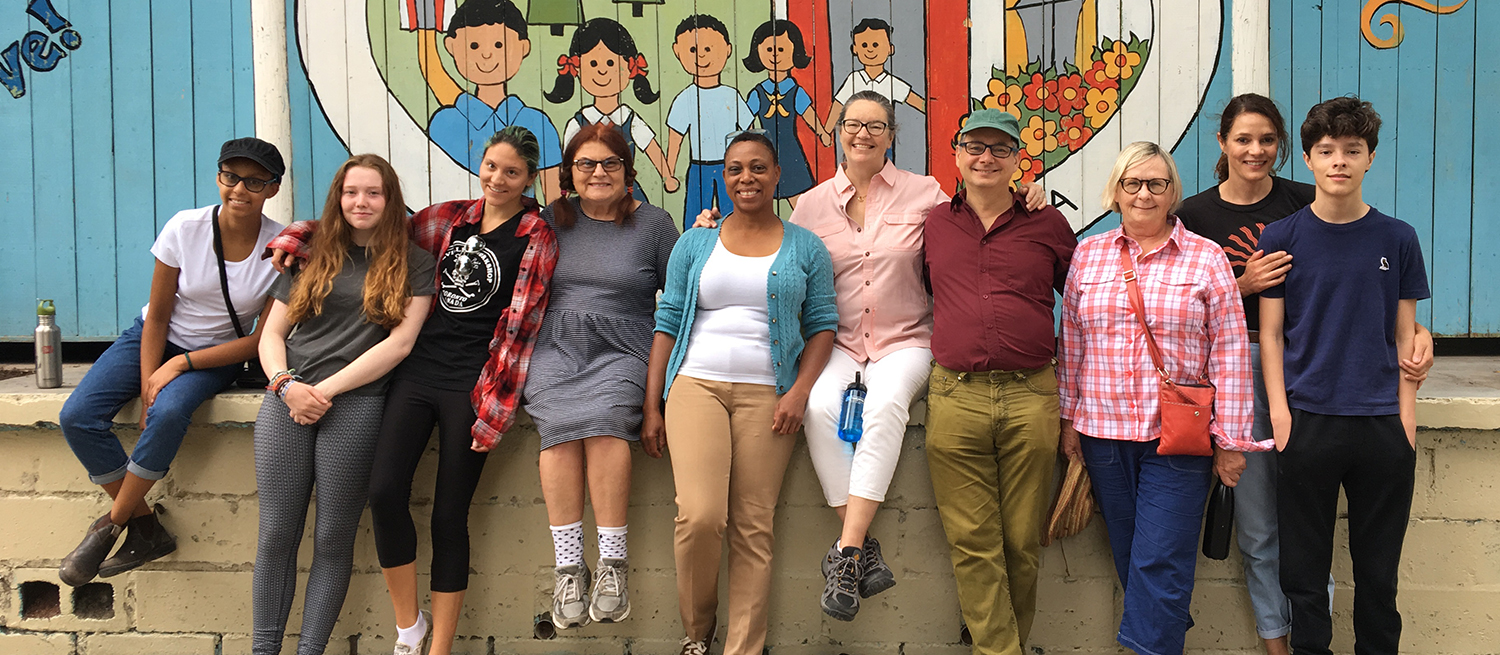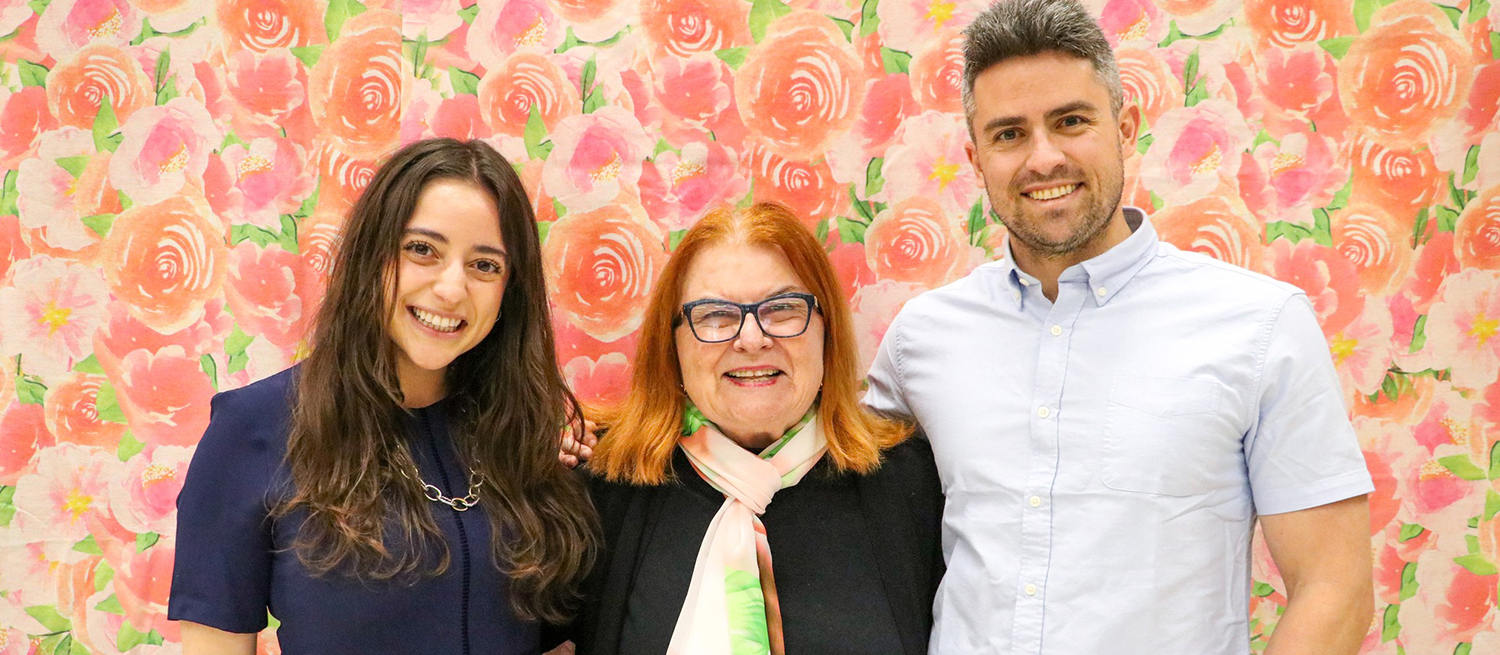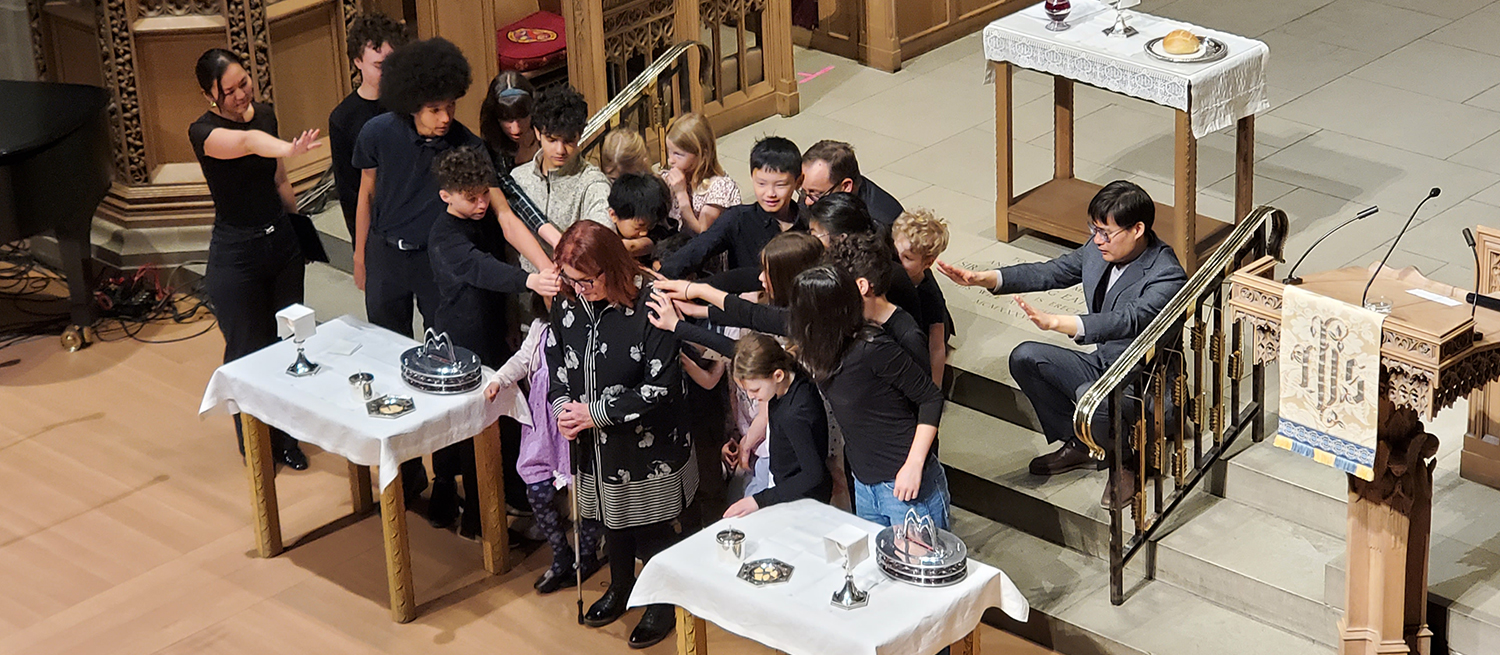If you have been around TEMC for any length of time, you likely know Joanne Leatch. She has served our church as a choir lead, wedding coordinator, as a Sunday School teacher, as a music teacher, and as the point person for our ministry with El Hogar in Honduras. A year or so ago she became our part-time pastoral care minister and only recently did her role expand to full-time. It is difficult to have both your newest, most enthusiastic hire also bring 50 years of experience to an organization! But that is what we have with Joanne.
This interview has been condensed for clarity and brevity.
How is your work different now that you’re full-time in pastoral care?
The bigger change was becoming an official part of the staff as a part-time person. This is even more true now that I’m full-time: I feel a lot more the weight of responsibility—in a good way. Talking to people and not being rushed as I do so is a legitimate part of my job now—that’s part of life we should all participate in more often. The person I’m meeting with is someone to whom I’m bringing the church, God and Jesus and the Spirit, and hopefully offering help in some way.
How does your work now differ from the legal work you’ve done for decades?
At Emmanuel College this summer, our final class session was a potluck. We were invited to bring something from our culture, so I brought Albert’s Jamaican patties. Our professor asked, “Do you think it’ll be a big difference going from being in law to being a minister?” I said, “Not at all.” I’ve always felt I was ministering in my law practice. Now I’m also going to bring my legal brain to the practice of ministry. If you’re in the right kind of law, they match perfectly.
Is it an asset to have the long memory here that you do?
The longevity is great. I’m completely energized and enthusiastic about this new role. But how many times have you asked me, “Who is this?” And I know and can go see them, or I know the story from thirty years ago. It’s pretty handy. When I started there was no period of time needed to get used to the congregation.
How did you first come to us?
I used to say I found change difficult and didn’t like new things. But in university I won a singing scholarship at the conservatory and got a call from Dr. Ouchterlony's secretary. He was principal of the conservatory and music director here and had never heard me sing. He was sitting at the organ and he turned to me and said “I would like to offer you the position of contralto soloist.” And naïve me said “But I already have a church job.” He said “You could resign and come here.” So I phoned my music teacher, who said “My dear, resign your post immediately and go to Eaton Memorial.”
I loved it from the first week, which was unusual for me. It just felt right, and this job feels the same way: right.
Then I had my kids so I got involved in Sunday School and was one of the assistants with the Cub Scout pack when we had that. Then confirmation and El Hogar. Each has been a great fit from the start. After all those years of singing this opportunity came up and I felt I had to apply.
Why has El Hogar been so meaningful to you?
That’s another thing that felt like a great fit from the start. I hope we can get there again soon and on the lookout for people to come.
It started some 50 years ago. There were Anglican clergy at a conference there noticing kids eating out of garbage cans. They started it for five boys who needed a place to live. Then they opened a school which is now a junior campus for kids aged 5-13. Some have to live there, others come to the school from home. El Hogar tries to help their parents with food or whatever other needs. Then after junior school the students go to a campus to learn woodworking, welding, electricity, computers, or pre-university. Some have gone on to university after that.
The organization is small enough that you know every nickel is going to the kids. There is no waste, and the people are so dedicated. It’s different than a program where you drop in, do a thing, and leave. With El Hogar you have a connection for as long as you want it. That’s why I serve on its board (Joanne’s phone is pinging as we talk—turns out it’s her "adopted" Honduran son).
What surprises have you experienced so far in your newer church work?
The first time I visited someone in the ICU, I didn’t even know if they would let me in. I wasn’t family, it was late at night. I buzzed and told them I’m the pastoral care from this church, and they said “come on in.” That opens doors for you. We got to talk and pray.
I’m struck by the gift and responsibility it is to be with people at the worst times of their lives. The best times too, they’re obviously fun, but the worst times it’s a big responsibility that I find very meaningful.
What’s seminary been like?
Out of the 15 courses I’ve taken, there’s only one that left me thinking, “meh.” Most of my classes have been really good, I’ve really liked them, I’ve found the teaching much better than when I was at school before. I’m not sure why that is. And I’m learning a lot and like the people and I’ve now taken courses in 4 of the colleges of the Toronto School of Theology. I love having a student card. I like libraries, they’re quite beautiful.
What does your family think of this new work for you?
My adult children and their wives are really excited for me. My Nova Scotia family is visiting at the end of July to the beginning of August, so I plan to bring my four grandchildren over to see where grandma works. My brothers think it’s great, their wives think it’s great, my friends think it’s great.
My role in worship now feels more official, I feel more responsibility, it feels right. I’m also getting to know so many more people that I didn’t know in the choir, when you’re passing by and may have seen their faces. That’s been a surprise to me: how many people that I didn’t know or who didn’t really know me.
What have you learned about God so far?
Now I think about God a lot more, like, all the time. And Jesus. And the Holy Spirit. And where it all fits in and what we can do and people’s beliefs. I’m sort of becoming more spiritually-centric I guess, it takes up more of my time and space in my head. I’m thrilled. This is my dream job.
What do you do for fun?
Most fun in the world is time with the children and their partners and my grandchildren. And I like hanging around with my brothers and their spouses. And I’ve made some close friends at my law job and close friends here. I guess I like people. I’ll tell someone I’m an introvert and they laugh hysterically. Truth is, they’re right. Maybe I’d be deeper if I were an introvert . . . but I get my energy from people.
Where did you get your comic timing?
It’s one of those things . . . it just is. Someone asked me where my comfort comes meeting with a grieving family: how did I learn that? I think I didn’t. It’s not something I set out to learn. It was just easy. I always thought before this role one of best things about being a minister would go into a situation and immediately start talking about important things instead of dancing around them. Before if I tried that it might have been seen as intrusive. But now, there as a minister, it’s what you’re supposed to talk about.
Even when I practiced law, I found that law was never just about law. As people we’re hard wired to have a spiritual hunger even if we deny it, that’s why church is such an important community base for a lot of people. Going through all you do in life: illnesses, family stuff, whatever, you have that community behind you.
Couldn’t that be offered without the religion bit?
Sure, but it’s deeper when you have the creator of the universe who you’re in personal relationship with.




